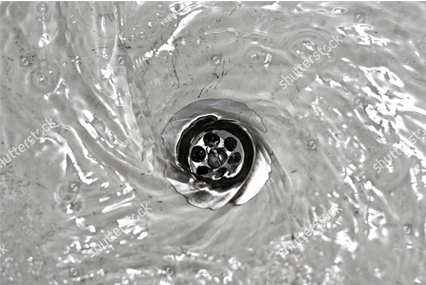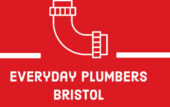What Causes a Water Hammer Noise in Pipes?
Water hammer, a plumber phenomenon that causes loud banging or knocking noises in plumbing pipes, can be quite disconcerting for homeowners. If you’ve ever wondered what causes this unsettling noise in your plumbing system, you’re not alone. In this article, we’ll delve into the intricacies of water hammer, exploring its causes, effects, and potential solutions. Let’s get started!
Understanding Water Hammer

What Is Water Hammer?
Water hammer, also known as hydraulic shock or fluid hammer, is a sudden and sharp increase in pressure within a plumbing system. This pressure surge occurs when the flow of water is abruptly halted or redirected, creating a shockwave that travels through the pipes. The result is a loud banging or hammering noise that can be heard throughout the house.
The Physics Behind Water Hammer
To understand the root causes of water hammer, it’s essential to grasp the physics involved. When water flows through pipes, it carries kinetic energy. When the flow is suddenly stopped or slowed down, this kinetic energy is converted into pressure energy, leading to the shockwave responsible for the noise.
Common Causes of Water Hammer
Water hammer can be caused by several factors, often a combination of them. Let’s explore the most common culprits:
1. Rapid Valve Closure
One of the primary reasons for water hammer is the abrupt closure of valves, such as faucets or solenoid valves. When these valves shut quickly, the flowing water is suddenly stopped, resulting in a pressure surge.
2. High Water Pressure
Excessive water pressure in your plumbing system can exacerbate the likelihood of water hammer. High-pressure water has more energy, making it prone to generating more significant shockwaves when suddenly stopped.
3. Loose Pipe Straps
Improperly secured pipes can move and vibrate as water flows through them. These movements can cause pipes to strike against walls or other surfaces, leading to the characteristic banging noise.
4. Air Chambers
Air chambers or water hammer arrestors are devices designed to absorb the shockwaves caused by water hammer. Over time, these chambers can become waterlogged, losing their effectiveness and allowing water hammer to occur.
Effects of Water Hammer
Potential Damage
While the noise of water hammer is unsettling, it’s not the only concern. Repeated water hammer incidents can lead to significant damage to your plumbing system. This may include cracked pipes, damaged valves, and even water leaks.
Appliance Wear and Tear
Water hammer can also take a toll on household appliances connected to your plumbing system. Dishwashers, washing machines, and water heaters may experience increased wear and a shorter lifespan when subjected to frequent water hammer.
Solutions for Water Hammer
Addressing water hammer is crucial to prevent damage and noise disturbances. Here are some effective solutions:
1. Adjust Water Pressure
Consult a plumber to check and adjust your home’s water pressure. Reducing excessive pressure can significantly minimize the occurrence of water hammer.
2. Install Water Hammer Arrestors
Consider installing or replacing water hammer arrestors in your plumbing system. These devices absorb shockwaves, preventing them from causing noise or damage.
3. Slow Valve Closure
Train yourself and your family members to close valves slowly and gently. This simple practice can go a long way in preventing water hammer.
4. Secure Loose Pipes
Inspect your plumbing system for loose pipes and secure them using appropriate pipe straps or hangers. This will prevent pipes from vibrating and striking against surfaces.
Water hammer is a common plumbing issue that can be bothersome and potentially damaging. Understanding its causes and effects is the first step in addressing the problem. By adjusting water pressure, installing water hammer arrestors, practicing slow valve closure, and securing loose pipes, you can effectively mitigate the impact of water hammer in your home.
FAQs
1. Is water hammer harmful to my plumbing system?
Yes, water hammer can be harmful. It can lead to pipe damage, valve issues, and even water leaks if left unaddressed.
2. Can I fix water hammer on my own?
While simple measures like adjusting water pressure or closing valves slowly can help, it’s advisable to consult a professional plumber for a comprehensive solution.
3. What are the signs of water hammer?
The most apparent sign of water hammer is a loud banging or knocking noise in your pipes when you turn off a faucet or valve.
4. Are water hammer arrestors necessary?
Water hammer arrestors are highly recommended to prevent water hammer. They are especially useful in reducing noise and protecting your plumbing system.
5. How much does it cost to fix water hammer?
The cost of addressing water hammer can vary depending on the severity of the issue and the solutions required. Consult a plumber Bristol for an accurate estimate.
